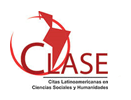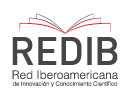Challenges of university teachers for the design of virtual educational experiences
DOI:
https://doi.org/10.21142/DES-1302-2021-0017Keywords:
distance education, information technology, higher education, teachersAbstract
In response to the health emergency, higher education institutions had to forcibly migrate to virtuality. This has impacted the educational context, both in teaching and learning. For this reason, the following article will analyze the particular features of virtual education and the principles of teaching in this context. Likewise, proposals are described to design virtual educational experiences considering motivational theories, learning theories, and instructional design applied to e-learning. Also, the challenges posed by the pandemic for university education are discussed and lines of action are proposed for the creation of e-learning experiences. It is concluded that there is a prevailing need to train teachers to use the different available tools for virtual education and recognize its uniqueness as opposed to traditional face-to-face classes.
Downloads
References
Álvarez, S. (2020). El impacto de la pandemia COVID-19 en la educación superior en el Perú y perspectivas de futuro. En Universidad de San Martín de Porres (Ed.), Educación y pandemia. Una visión desde la universidad (pp. 25-33). Cátedra Unesco Patrimonio Cultural y Turismo Sostenible.
Alves, P., Miranda, L. y Morais, C. (2017). The influence of virtual learning environments in students’ performance. Universal Journal of Educational Research, 5(3), 517-527.
Arias, P. y Merino, M. (2016). Integración de las nuevas tecnologías al contexto educativo: Una visión desde el diseño curricular. Didasc@ lia: Didáctica y Educación, 7(6), 143-152.
Arkorful, V. y Abaidoo, N. (2015). The role of e-learning, advantages and disadvantages of its adoption in higher education. International Journal of Instructional Technology and Distance Learning, 12(1), 29-42.
Barari, N., RezaeiZadeh, M., Khorasani, A. y Alami, F. (2020). Designing and validating educational standards for E-teaching in virtual learning environments (VLEs), based on revised Bloom’s taxonomy. Interactive Learning Environments, 1-13.
Bracho, K. y Bracho, M. (2020). COVID-19: Frente al desafío pedagógico de lo presencial a lo virtual. Hamut’ay, 7(2), 9-17.
Buabeng-Andoh, C., Yaokumah, W. y Tarhini, A. (2019). Investigating students’ intentions to use ICT: A comparison of theoretical models. Education and Information Technologies, 24(1), 643-660.
Cable.co.uk. (2020). Worldwide broadband speed league 2020.
Canaza-Choque, F. (2020). Educación superior en la cuarentena global: disrupciones y transiciones. Revista Digital de Investigación en Docencia Universitaria, 14(2). https://doi.org/ 10.19083/ridu.2020.1315
Canedo, G., Guzmán, A., Cervantes, O. y Martínez, S. (2018). Prácticas educativas innovadoras. Experiencias para documentar y compartir. Instituto Nacional para la Evaluación de la Educación.
Cepal-Unesco. (2020, agosto). Informe COVID-19. La educación en tiempos de pandemia de COVID-19. Cepal-Unesco.
Chávez, J. y Jaramillo, C. (2014). El estudio de las prácticas educativas y su relevancia para el análisis de procesos de formación en docencia universitaria. Calidad en la educación, 41, 161-176.
Chen, L. (2016). A model for effective online instructional design. Literacy Information and Computer Education Journal, 6(2), 2303-2308.
Retos de los docentes universitarios para el diseño de experiencias virtuales educativas en pandemia
Coll, C., Onrubia, J. y Mauri, T. (2008). Ayudar a aprender en contextos educativos: el ejercicio de la influencia educativa y el análisis de la enseñanza [Supporting learning in educational contexts: The exercise of educational influence and the analysis of teaching]. Revista de Educación, 346, 33-70.
Coloma, C. y Tafur, R. (1999). El constructivismo y sus implicaciones en educación. Educación, 8(16), 217-244.
Deci, E. L. y Ryan, R. M. (2000). The «what» and «why» of goal pursuits: Human needs and the self-determination of behavior. Psychological Inquiry, 11(4), 227-268.
Eom, S. (2019). The effects of student motivation and self-regulated learning strategies on student’s perceived E-learning outcomes and satisfaction. Journal of Higher Education Theory & Practice, 19(7).
Ferri, F., Grifoni, P. y Guzzo, T. (2020). Online learning and emergency remote teaching: Opportunities and challenges in emergency situations. Societies, 10(4). https://doi.org/10.3390/soc10040086
Figallo, F., Gonzáles, M. y Diestra, V. (2020). Perú: Educación superior en el contexto de la pandemia por el COVID-19. ESAL, Revista de Educación Superior en América Latina, 20-28.
Fırat, M., Kılınç, H. y Yüzer, T. V. (2018). Level of intrinsic motivation of distance education students in e‐learning environments. Journal of Computer Assisted Learning, 34(1), 63-70.
Freire, J., Páez, M., Núñez, M., Narváez, M. y Infante, R. (2018). Curricular design a tool for educational achievement. Revista de Comunicación de la SEECI, (45), 75-86.
García, F., Corell, A., Abella-García, V. y Grande, M. (2020). Online assessment in higher education in the time of COVID-19. Education in the Knowledge Society, 21.
Gillies, R. M. (2003). Structuring cooperative group work in classrooms. International Journal of Educational Research, 39(1-2), 35-49.
González, C. y Cruzat, M. (2019). Innovación educativa: La experiencia de las carreras pedagógicas en la Universidad de Los Lagos, Chile. Educación, 28(55), 103-112. https://doi.org/10.18800/educacion.201902.005
Hassinger, Z. (2020). La educación virtual donde el estudiante es el protagonista. Una visión desde la universidad. En Universidad de San Martín de Porres (Ed.), Educación y pandemia. Una visión desde la universidad (pp. 45-53). Cátedra Unesco Patrimonio Cultural y Turismo Sostenible.
Heng, K. y Sol, K. (2020). Online learning during COVID-19: Key challenges and suggestions to enhance effectiveness. Cambodian Education Forum.
Kumi-Yeboah, A. (2018). Designing a cross-cultural collaborative online learning framework for online instructors. Online Learning, 22(4), 181-201.
Lovón, M. y Cisneros, S. (2020). Repercusiones de las clases virtuales en los estudiantes universitarios en el contexto de la cuarentena por COVID-19: El caso de la PUCP. Propósitos y Representaciones, 8(3), 1-15.
Marquina, P., Avolio, B., Del Carpio, L., Fajardo, V., Chumbipuma, D. y Salas, A. (2020). Resultados del Ranking de Competitividad Mundial 2020. CENTRUM PUCP, Escuela de Negocios de la Pontificia Universidad Católica del Perú.
Martínez, C. (2008). La educación a distancia: sus características y necesidad en la educación actual. Educación, 17(33), 7-27.
Niño, S., Castellanos-Ramírez, J. y Patrón, F. (2021). Contraste de experiencias educativas de estudiantes universitarios en dos escenarios educativos: enseñanza en línea vs. enseñanza remota de emergencia. Revista de Educación a Distancia, 65(21). https://doi.org/10.6018/red.440731
Núñez-Cortés, J. (2020). Influencia de la pandemia por COVID-19 en la formación médica. Revista de Medicina y Cine, 16, 25-31. https://doi.org/10.14201/rmc202016e2531
Paechter, M. y Maier, B. (2010). Online or face-to-face? Students’ experiences and preferences in e-learning. The Internet and Higher Education, 13(4), 292-297.
Parra, D., Zuñiga, C. y Lucio, E. (2020). Experiencias internacionales pedagógicas virtuales en la educación superior durante el confinamiento sanitario. Journal of Alternative Perspectives in the Social Sciences, 10(4), 971-986.
Perales, M., Pedraza, L. y Moreno, P. (2019). Work-in-progress: Improving online higher education with virtual and remote labs [Conferencia]. IEEE Global Engineering Education Conference (EDUCON). Dubái. https://doi.org/10.1109/EDUCON.2019.8725272
Rahm, A. K., Töllner, M., Hubert, M. O., Klein, K., Wehling, C., Sauer, T., ... y Schultz, J. H. (2021). Effects of realistic e-learning cases on students’ learning motivation during COVID-19. Plos One, 16(4), e0249425.
Ratnaningsih, S., Hady, Y., Dewi, R. S. y Zuhdi, M. (2020, octubre). The effectiveness of using Edmodo-Based E-learning in the blended learning process to increase student motivation and learning outcomes. En 2020 8th International Conference on Cyber and IT Service Management (CITSM) (pp. 1-5). IEEE.
Retnowati, E., Ayres, P. y Sweller, J. (2017). Can collaborative learning improve the effectiveness of worked examples in learning mathematics? Journal of Educational Psychology, 109(5), 666.
Rodrigues, H., Almeida, F., Figueiredo, V. y Lopes, S. L. (2019). Tracking elearning through published papers: A systematic review. Computers & Education, 136, 87-98.
Rodriguez-Segura, l., Zamora-Antuñano, M., Rodriguez-Resendiz, J., Paredes-García, W., Altamirano, J. y Cruz-Pérez, M. (2020). Teaching challenges in COVID-19 Scenary: Teams platform-based student satisfaction approach. Sustainability, 12(18). https://doi.org/10.3390/su12187514
Rosenberg, M. J. (2001). E-learning: estrategias para trasmitir conocimiento en la era digital. McGraw-Hill.
Sadik, A. (2017). Students’ acceptance of file sharing systems as a tool for sharing course materials: The case of Google Drive. Education and Information Technologies, 22(5), 2455-2470.
Schreiber, L. M. y Valle, B. E. (2013). Social constructivist teaching strategies in the small group classroom. Small Group Research, 44(4), 395-411.
Serdyukov, P. (2017). Innovation in education: what works, what doesn’t, and what to do about it? Journal of Research in Innovative Teaching & Learning, 10(1), 4-33.
Soto, S. y Valdivieso, A. (2020). La gestión de la experiencia de la educación remota por emergencia y el nivel de satisfacción en los estudiantes de pregrado. [Tesis de pregrado, Pontificia Universidad Católica del Perú]. https://tesis.pucp.edu.pe/repositorio/bitstream/handle/20.500.12404/18647/Soto%20Bermudez_Valdivieso%20Chudan_Talledo%20Peña_Gestión_experiencia_educación%20remota1.pdf?sequence=1&isAllowed=y
Tarazona, J. (2012). Generalidades del diseño instruccional. Inventum, 12,37-41.
Torres, T. y García, A. (2019). Reflexiones sobre los materiales didácticos virtuales adaptativos. Revista Cubana de Educación Superior, 38(3).
Tran, B. (2016). Educational experiences with traditional, online and hybrid learning environments. Journal of Education & Social Policy, 3(3), 60-63.
Varas, H., Suárez, W., López, C. y Valdés, M. (2020). Educación virtual: factores que influyen en su expansión en América Latina. Utopía y Praxis Latinoamericana, 25, 21-40.
Vargas, J., Chiroque, E. y Vega, M. (2016). Innovación en la docencia universitaria. Una propuesta de trabajo interdisciplinario y colaborativo en educación superior. Educación, 25(48), 67-84. http://dx.doi.org/10.18800/educacion.201601.004
Vialart, M. (2020). Estrategias didácticas para la virtualización del proceso enseñanza aprendizaje en tiempos de COVID-19. Educación Médica Superior, 34(3), 1-10.
Vicentini, I. (2020). La educación superior en tiempos de COVID-19. Aportes de la Segunda Reunión del Diálogo Virtual con Rectores de Universidades Líderes de América Latina. Banco Interamericano del Desarrollo.
Xu, F. y Du, J. T. (2019). Examining differences and similarities between graduate and undergraduate students’ user satisfaction with digital libraries. The Journal of Academic Librarianship, 45(6).
Downloads
Published
Issue
Section
License

Esta obra está bajo una licencia http://creativecommons.org/licenses/by-nc-sa/4.0/



















